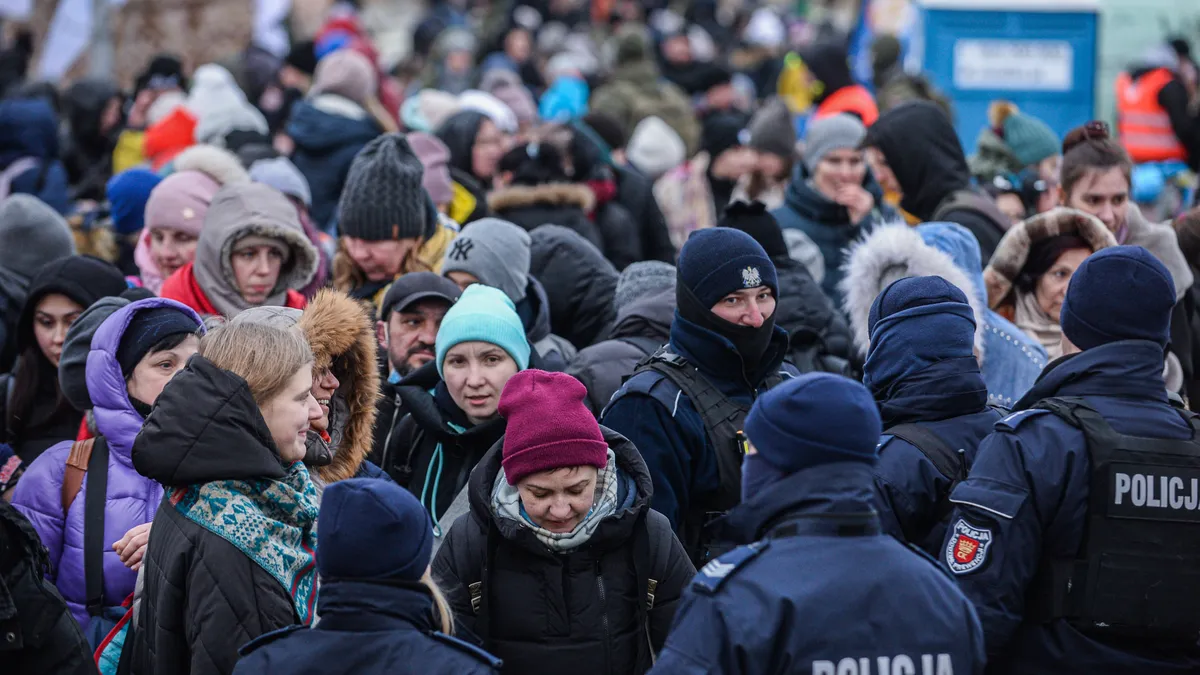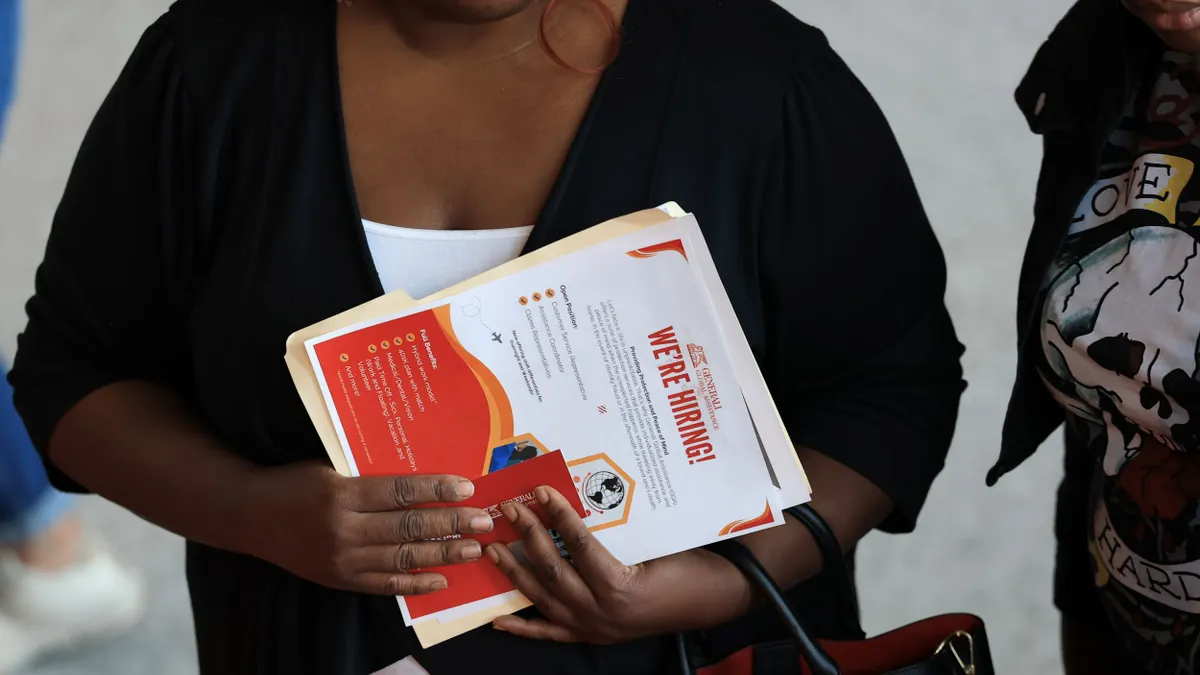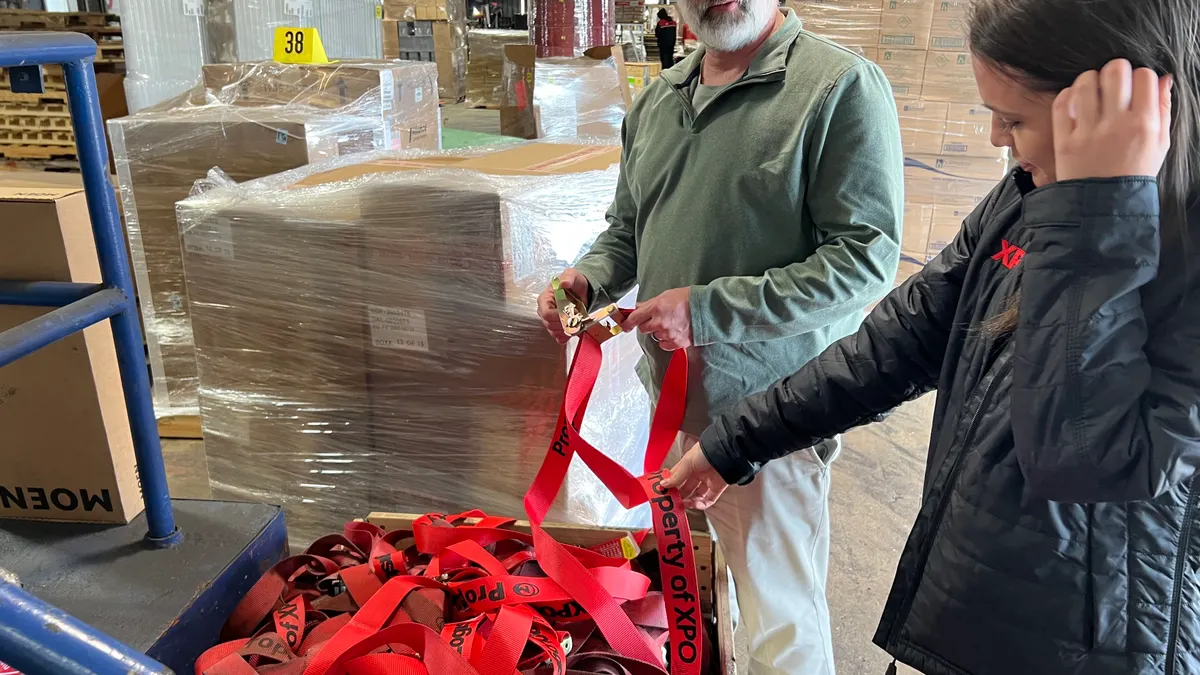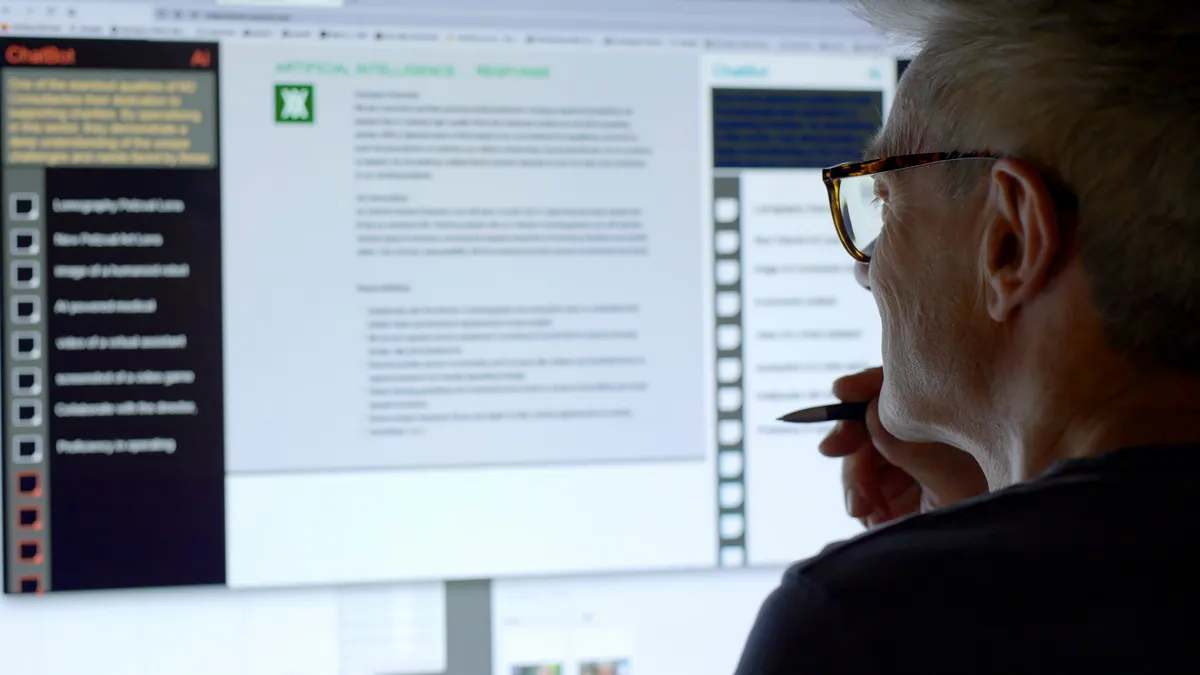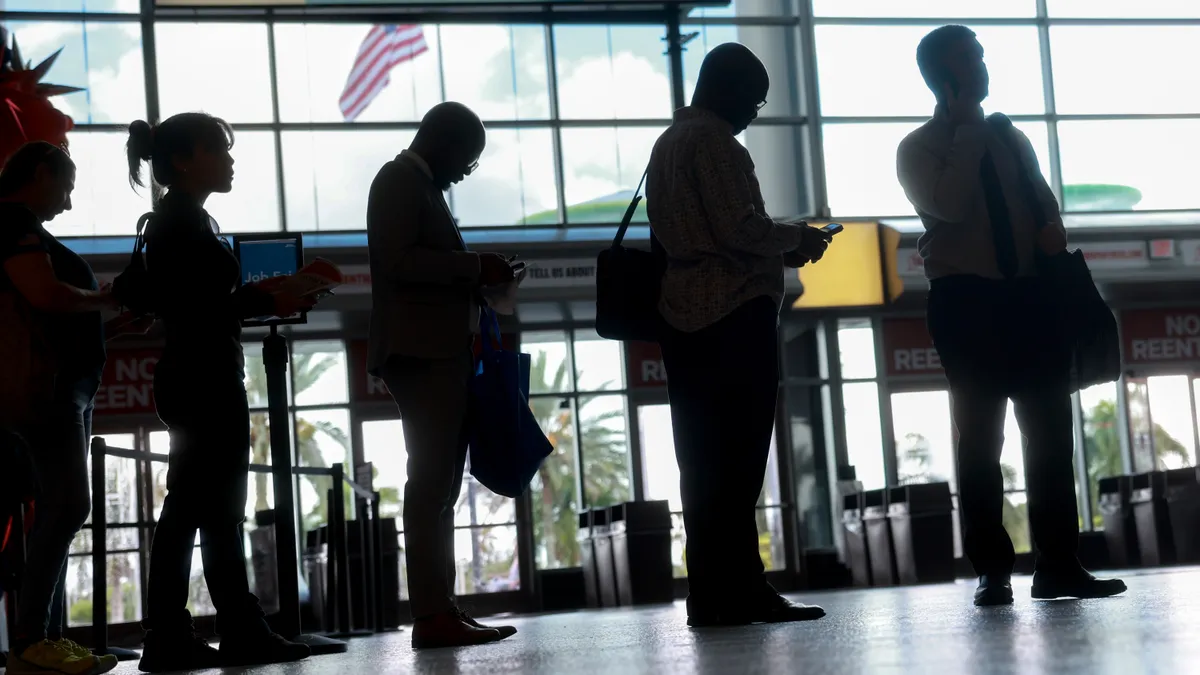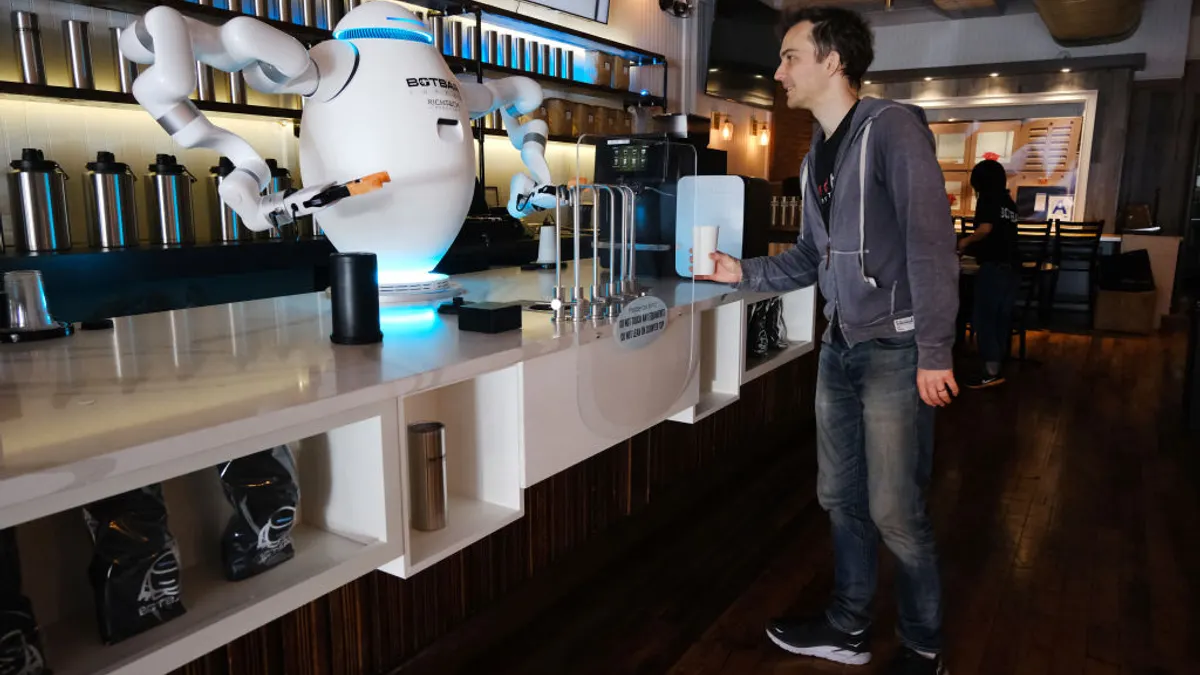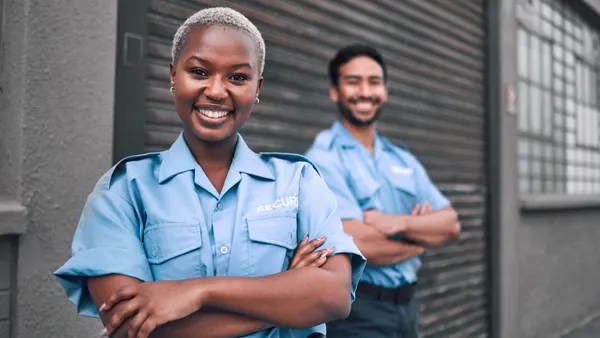Visa CEO Al Kelly doesn't usually take his cell phone to church, but he had it there on Feb. 27 when 10 minutes into the service someone pinged him about taking a call from embattled Ukrainian President Volodymyr Zelenskyy.
"President Zelenskyy was trying to get ahold of me," Kelly recounted Tuesday on an investors conference webcast. "That was the initial sign to me about the pressure we would feel relative to (the Ukrainian government) trying to pull every stop they could to put pressure on the Russian government."
On March 5, Visa had said it was moving to suspend all card transactions in Russia "over the coming days," and that ultimately cards issued in Russia wouldn't work elsewhere and any cards issued outside Russia wouldn't work in Russia. Days earlier, it had also complied with international sanctions and blocked Russian banks from its worldwide payments network.
While the world focused on how to isolate Russia and President Vladimir Putin, Kelly was not only assessing the U.S. government's demands for sanctions, but also racing to try to protect Visa's employees.
The CEO of the largest U.S. credit card company explained how his attention has been consumed by the situation unfolding in Ukraine since Russia's Feb. 24 invasion. Visa has about 155 employees in Ukraine that the company has been seeking to ferry to safety. "It has occupied my time pretty much 24/7" over the past 11 days, Kelly said during the RBC Capital Financial Institutions conference webcast Tuesday.
San Francisco-based Visa disclosed last week that in 2021 the company derived about 5% of its $24 billion in annual revenue from Russia and Ukraine, which was a bigger amount than most analysts had expected.
During the webcast, Kelly described how the company has hired security firms and shuttle services to help Visa employees in Ukraine move west from Kyiv, where all of them were based, toward exiting the country. But the effort has become increasingly difficult as Russian forces ramp up their assault on that capital city and the Ukrainian government erects more checkpoints, he said.
Sprinter vans and checkpoints in race to leave Ukraine
About 50 of the Visa employees from Ukraine have been relocated, mainly to Poland, but also Moldova, Hungary and Romania, he said. The security firms have provided Mercedes-Benz Sprinter vans within a half-mile of the border loaded with supplies to aid the workers and their families once they cross the border, he added.
"We're down to, I believe, as of this morning, about 10 employees in the Kyiv area, with the balance to the west in different places," he said. "Even in war, cottage industries start up and we have found mercenaries who are willing to take vans of people, and we've been getting to the western edge of Kyiv."
One of the challenges though in getting the employees and their families out quickly has been an increasing number of Ukrainian checkpoints on the road in the past 48 hours, where vehicles are stopped and checked for male passengers, Kelly said. Ukrainian men between the ages of 18 and 60 have been ordered to stay behind and fight in Ukraine.
"Unfortunately now, men can't move even — up until about 48 hours ago, we could help move a man," he explained, noting that about half of Visa's employees in Ukraine are men and the other half are women. The woman who headed up the company's operations in Ukraine is now in Budapest, but her husband remains behind in Ukraine, he said, without providing her name.
"Now, there's so many more checkpoints set up, even on the edge of Kyiv, that if a man is in the van, or the Sprinter bus, or whatever, there's a risk that the entire group will be turned back or stopped for a long period of time, neither of which is good," Kelly said.
'We just couldn't stand by,' Kelly says
Kelly didn't say whether he ever eventually talked directly to Zelenskyy after he got the text, or what the Ukrainian president was trying to convey to him.
Kelly did say that Visa's decision to suspend services in Russia last weekend came after his management team reached three conclusions: It was becoming increasingly difficult to operate in Russia under hazy sanction restrictions that were "a pain;" there were probably more sanctions coming; and Visa's management disapproved of the unprovoked attack on a "beautiful country with beautiful people" where Ukrainian colleagues were enduring heart-wrenching hardship, he said.
"We just couldn't stand by," said Kelly, who is also the company's board chairman. "Probably one of the most brutal meetings I've had in my career was talking to our Ukrainian employees a week ago today, and they put protected pictures on the screen of their homes or former homes or homes of their parents or loved ones. It was just horrendous."
Meanwhile, in Russia, where the company has had about 210 employees, Visa is offering those workers a route out of the country as the company winds down operations with Russian clients that Kelly said he hopes understand why Visa must exit.
Visa is offering its employees in Russia, many of whom are Russian, positions in other parts of the world, Visa Spokesperson Andy Gerlt said in a phone interview.
A Visa CEO's war lessons
About 25 employees that were in Russia have exited the country in the past 48 hours, Kelly explained during the midday presentation. Most have headed to Dubai, Visa's headquarters for the Middle East and Africa, which is serving as a staging place for the exits.
Visa is having meetings twice daily to assess the situation, and "doing things that I never thought we'd have to do," Kelly said. That includes standing by life insurance policies that are no longer valid in a war situation and finding health insurance for those who have shifted to other countries, he said.
"I was talking to a woman last week who's got a three-week-old baby and left her husband behind, and went to Poland and we wanted to make sure that she was able to get to a pediatrician," he explained.
Kelly said he's learned things about war that he never knew, such as how hard it is to create corridors in a conflict zone for humanitarian and press movements.
"Unfortunately, we've seen in the last 24 hours, that when ceasefires are agreed to, the Russians are ignoring them and therefore people are wandering and getting hit by bombs," Kelly said. "It's just an awful, awful situation and how long it goes on and where it stops and where it goes is anybody's guess at this point."
Mastercard faced with similar employee concerns
For rival Mastercard, which also suspended services in Russia over the weekend, the contribution from the two countries was about 6% last year, the company said. Mastercard CEO Michael Miebach echoed the sentiments of Kelly when he spoke Tuesday at a different investor conference hosted by Wolfe Research. Purchase, New York-based Mastercard has about 200 employees in Russia, he said.
"We're getting involved in trying to get our people into safe places and so forth so the human dimension is beyond imagination, so the kind of stuff we have to deal with at this stage is just horrible," he said on the Wolfe Research conference webcast.
"On Thursday, our services will cease to operate" in Russia, Miebach said during the webcast. "Suspension means we will still have our people there. We have 200 people in Russia. We worry about their safety as much as we worry about the safety of our people in Ukraine. And that was an important consideration on our timing. When do we do this? Do we have a plan in place to take care of them? We now have that plan in place." Miebach didn't elaborate.
Mastercard and Visa each said in statements last week that their companies would donate $2 million for humanitarian relief in the Ukraine region.
Correction: The story has been updated to correct the date on which Kelly received a message from Zelenskyy.



